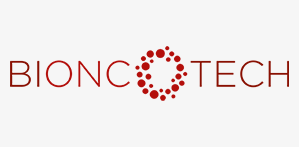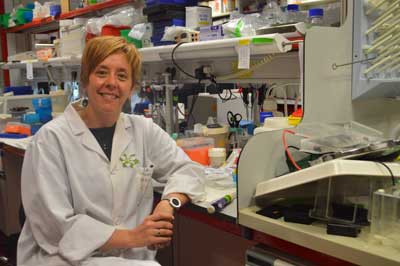
SCIENTISTS in Spain claim to have created a ‘vaccine’ against cancer that they believe could work.
The Clínica Universidad de Navarra and the Gregorio Marañón University General Hospital have started to treat five people, within the context of a clinical trial, with the anti-tumour drug BO-112, which can be considered the first immunotherapy developed entirely in Spain .
The drug will be testing between 12 and 18 affected by solid tumours with poor prognosis. To perform this clinical trial, BO-112 is administered as an injection that goes directly to the tumour. Its mechanism combines two pathways of therapeutic action: immunotherapy, recognised as the scientific breakthrough of the year 2013 by the journal Science, and autophagy, the mechanism that this year has won the Nobel Prize for Medicine, awarded to the Japanese scientist Yoshinori Ohsumi.
The formulation of BO-112 is based on double-stranded RNA molecules, that is, it simulates a virus, which achieves a direct antitumour response, which in turn is reinforced thanks to the activation of the mechanisms of innate immunity, probably derived from the activation of interferon. The drug has already demonstrated this antitumour activity in pre-clinical models.
“This clinical trial has as fundamental objectives to know the safety profile of the drug and to deepen its mechanism of action, particularly in relation to the activation of the immune response at the local level, of the tumour, and systemic triggered after the administration of BO- 112 “explains Iván Márquez Rodas, co-director of the work and oncologist of the General University Hospital Gregorio Marañón.
In this first phase 1 clinical trial, for which the Hospital Gregorio Marañón and the Clínica Universidad de Navarra continue to select patients, the safety and dose of the medication will be analysed. To become part of the work, oncological patients must be affected by aggressive solid tumours that meet the selection criteria established in the study. In this first clinical trial, which began the first week of October, patients will be evaluated at the time of receiving intratumoral injection and between seven and 14 days later.
“In this trial we incorporate the novel idea of administering this immunotherapy directly into tumour lesions, and we aim for an in situ vaccination effect.” Our main hope is that the new treatment comes into action with other immunotherapy drugs already approved for their use. clinical or developing, “says Ignacio Melero specialist in cancer immunotherapy at the University Clinic of Navarra and co-director of work.

Public-private collaboration
The drug has been developed by the Spanish start-up Bioncontech and is an example of public-private collaboration. In 2010, the National Centre for Oncological Research (CNIO) licensed the drug to the Spanish biotechnology company, which was born precisely as a result of this agreement. It is the first medicine developed from a work of the CNIO that enters the clinical phase, that is, it is tested in humans.
The investigations in the CNIO have been directed by Marisol Soengas, head of the Melanoma Group. According to Soengas, “scientists generally have few opportunities to see how our laboratory results approach the patient directly. This clinical trial is the result of the collaboration effort of researchers from multiple disciplines, with a fantastic team at the head of Bioncotech. From the CNIO we are very proud of this great step “.

Marisol Soengas, head of the Melanoma Group
“For a start-up like ours, bringing a medication to the clinic is already a milestone, but the beginning of this trial puts the odometer back on the 0, since it has now to prove the validity of our findings in patients “, explains the general director of Bioncotech, Marisol Quintero.
After this trial, if the results are positive, the therapeutic potential of the product will be assessed both alone and in combination with other agents, especially the products already approved in the area of immuno-oncology.
“Although immunotherapy is revolutionising the treatment of some types of cancer, the response rates have a wide margin for improvement, so the combination therapy between different drugs that stimulate the immune system is the great hope of oncology,” they say. the researchers of the study.
The Gregorio Marañón University General Hospital will carry out studies on the molecular characterisation and expression of the genes to further delve into the mechanisms of action of BO-112 to determine if there is a tumour profile or patients that are more easily able to respond to the drug. .
It is expected that the first results of the trial will be available in a few months and that they can be communicated at the next congress of the American Society of Clinical Oncology (ASCO), which will be held in Chicago from June 2 to 6, 2017.
January 2019
If you find this article interesting, please sign up to receive our newsletters for medical, dental and beauty news, information and promotions.
